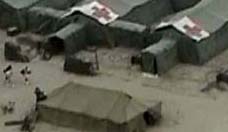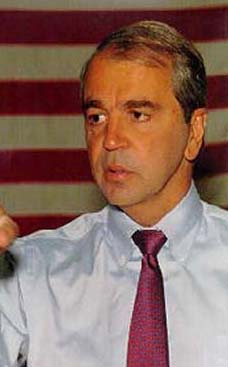
Headlines; FOIA; Freedom of Information
Homeland security barrier to FOIA reform
Homeland security barrier to FOIA reform
By K. Daniel Glover, National Journal
Advocates of open access to government documents are pushing for another update to the Freedom of Information Act, and they have the support of some key members of Congress.
In June, the Senate passed legislation expanding FOIA that was sponsored by Sen. John Cornyn, R-Texas, a member of the Senate Judiciary Committee, and Sen. Patrick Leahy, D-Vt., the panel's ranking member, and they have other FOIA bills in the pipeline. Rep. Lamar Smith, R-Texas, the chairman of a House Judiciary subcommittee, is pushing companion legislation.
Strengthening FOIA may be difficult, however. Jane Kirtley, director of the Silha Center for the Study of Media Ethics and Law at the University of Minnesota, said that the emphasis on security since the 9/11 terrorist attacks makes reform a challenge. The Bush administration has been more secretive since then, she said, and the public is also "very concerned that openness makes terrorists' activities that much easier."
The circumstances today resemble those in the 1950s, when the initial congressional push for FOIA began. And back then, amid concerns about releasing sensitive data during the Cold War, it took 11 years to get the concept of "freedom of information" written into law.
FOIA was the brainchild of newspaper editors and writers. But their movement made little progress until Rep. John Moss, D-Calif., took his seat on the House Post Office and Civil Service Committee and was denied information he had requested from the Civil Service Commission. "I was convinced that if there was such a readiness to withhold information from Congress," Moss said in a 1965 interview, "they must be withholding on a massive basis from the public and from others with less leverage."
When Democrats regained House control in 1955 and Moss won a slot on the Government Operations Committee, he persuaded the chairman to investigate the issue. A preliminary study confirmed Moss's suspicions, and he was named chairman of a new subcommittee to explore the topic further. The panel held its first hearing in 1955.
Moss established the extent of the problem by sending a questionnaire to federal agencies. In 1956, the Democratic Party chastised the Eisenhower administration for its secrecy and made "freedom of information" part of its platform. But secrecy in the executive branch was not unique to Republicans. In 1961, President Kennedy encouraged the press to censor itself because of national security concerns, and his successor, Lyndon Johnson, resisted efforts to let the sun shine on government activities.
Despite steady opposition from the Eisenhower administration, Moss and Sen. Thomas Hennings, D-Mo., pushed ahead. Their first small success came in 1958, with the enactment of a narrow bill to amend the 1946 Administrative Procedure Act, which was designed to provide access to information but which many bureaucrats instead had used as justification to withhold it. "It was a small, and largely ineffective, step," George Kennedy, a University of Missouri journalism professor, wrote in a 1996 article on the history of FOIA.
The Senate passed the first broad freedom of information bill on July 28, 1964, and resurrected and passed virtually the same bill by voice vote the next year, in the 89th Congress. The House debate in 1966 focused on the 1946 act. That law only mandated data disclosures to people who were "properly and directly concerned," and it created exemptions for "secrecy in the public interest," "internal management," and even "good cause." Rep. Ogden Reid, D-N.Y., complained during the debate: "This is a broad delegation to the executive. Further, none of these key phrases is defined, nor has any of them ... been interpreted by judicial decisions."
While Rep. David King, D-Utah, acknowledged that the Cold War compelled the United States to "impose some checks on the flow of data," he criticized the "widespread breakdown in the flow of information from the government to the people" over the previous 20 years. "Chaos and confusion have nurtured a needless choking off of information disclosure," King said.
Moss touted provisions in his bill to give all citizens access to government information and to allow judicial review of agency information denials. "It is this device which expands the right of citizens and which protects them against arbitrary and capricious denials," he said. No lawmakers spoke against the legislation, and the House passed it 308-0.
Moss insisted during floor debate that the White House had worked with him on the bill, and Johnson did sign it into law. But Bill Moyers, Johnson's press secretary at the time, recalled in a PBS special decades later: "LBJ had to be dragged kicking and screaming to the signing ceremony. He hated the very idea of the Freedom of Information Act.... He dug in his heels and even threatened to pocket veto the bill."
Subsequent administrations have been equally averse to FOIA -- President Ford unsuccessfully vetoed amendments in 1974, for instance. So even if the current Congress clears a bill to strengthen the law, advocates of open government will be kept busy. As Rep. Melvin Laird, R-Wis., said on the House floor in 1966, "We cannot legislate candor, nor can we compel those who are charged with the life-and-death decisions of this nation to take the American people into their confidence."











